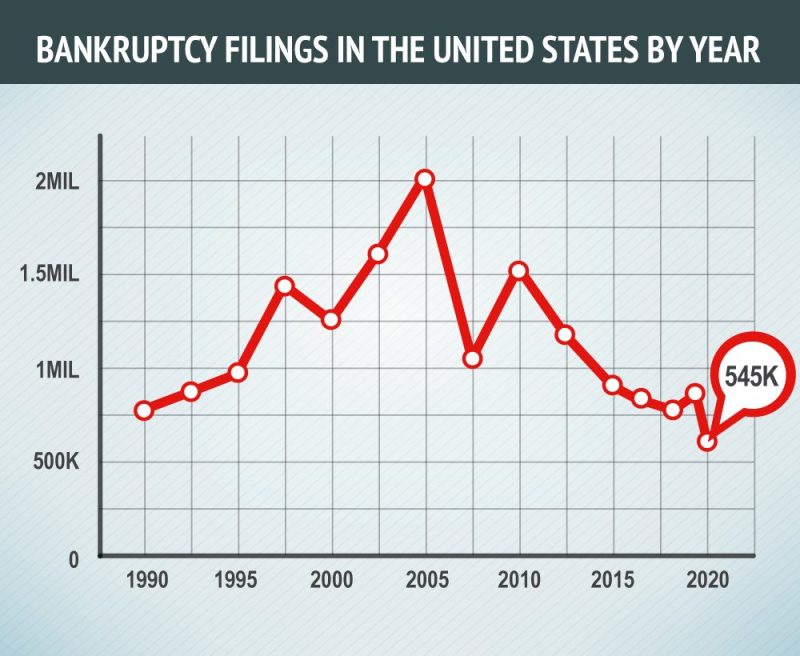Can Taxes Be Included In Bankruptcy – You may have heard that filing for bankruptcy can help you pay off your past tax debts – and that may be true. But don’t expect to get rid of all your IRS obligations.
To be removed from the market, the tax debt must meet certain conditions. To find out if your IRS debt will be waived when you file, ask yourself the following questions.
Can Taxes Be Included In Bankruptcy

Federal income taxes and state income taxes are the only types of IRS debt you can discharge by filing bankruptcy. If your tax liabilities are not based on income, they will not be exempt.
Stop Tax Collection Today! Award Winning Georgia Bankruptcy Lawyers
To meet the exemption criteria, the income you owe must be from tax returns that must have been filed at least three years ago. So, if the deadline to file your tax return is April 15, 2016, and you have not requested an extension, the debt will not be discharged unless you file for bankruptcy. after April 15, 2019.
In order for your past earnings to be removed, you must file at least two years before you file for bankruptcy. Filing a return to the IRS on your behalf is usually exempt, but some courts will waive it if you meet all other criteria.
To be considered out of business, your debt must meet the 240-day rule. In other words, the IRS must verify the tax – or enter it into its records – at least 240 days before the date of your filing. Keep in mind, however, that if the IRS has suspended the filing process because of a pending or original Chapter 7 bankruptcy filing, this period may be delayed.
If you owe $10,000 or more in back taxes, the IRS may have to place a lien on your property. In this case, filing bankruptcy will not relieve you of your obligation to pay the debt. A lien turns your taxes into secured debt, which means the IRS can seize your property and sell it to recover what you owe.
Learn About Taxes When You File For Bankruptcy
Are your tax debts eligible for repayment? How Do I File a Chapter 7 or 13 Bankruptcy? What are your options for managing IRS debt? For answers to these questions and all other business filing questions, contact the law firm of Davis & Jones, P.C.
Our bankruptcy attorneys have 40 years of legal experience, and we’ve helped more than 20,000 Utahns regain their financial security by consolidating and paying off their debts. If you need specific advice on filing a bankruptcy petition, contact the law office of Davis & Jones, P.C. and schedule a free consultation today. We strive to provide our users with valuable information while remaining unbiased and truthful. We demand the highest business standards from our sponsors and partners. When detected, these sponsors may pay us for clicks and transactions that occur through links on this page.
By submitting this form, you will also be signed up to our newsletter to receive the latest newsletters, financial tips, tools, gifts and advice directly to your inbox. Privacy Policy

Not paying taxes is special, even when it comes to business. Although IRS or state taxes can be waived, this is only in certain circumstances. Even without the automatic living that comes with bankruptcy there are some exceptions that are important to consider if you owe taxes. However, like most, bankruptcy can provide a way out of your tax problems.
Solved 2. In A Bankruptcy Proceeding, The Highest Priority
The following information can help you understand what to do with taxes when you file a business application and how to write it. If you have questions or would like to speak with an expert about your situation, give us a call or fill out the form to contact a tax or bankruptcy expert… or both.
So. Filing a bankruptcy petition can help you clear your tax debt with the IRS. In fact, federal and state taxes may be owed on the business in some cases. These five factors determine whether your taxes can ultimately be exempt:
The income is taxable under Chapter 7 or a partial payment under Chapter 13. However, you cannot pay taxes on wages, employment taxes, financial faxes, sales taxes, and unpaid taxes. In some cases, property taxes are also eligible for exemption.
The clock starts on tax day. The “new” tax for the previous two years will not be paid.
How To Know When To File Bankruptcy: Tips And Considerations
To be eligible for tax, you must file your tax return correctly. Any attempt to cheat you back or avoid paying this tax means you can’t use a business to get rid of it.
Federal law requires you to file tax returns for at least two years before you file for bankruptcy. However, some states require you to submit your application on time. If you didn’t file a return and the IRS sent you a return, it won’t count, depending on where you filed the business.
The IRS has certain rules about when the tax assessment occurs before you file a bankruptcy, commonly known as the “240 day rule.” However, there is an exception that can extend the time if you have applied for Social Security or have previously applied for unemployment.

The rules about when the tax is eligible and when it can not be difficult, especially in relation to the end of when it was evaluated. That’s why it’s a good idea to consult with a qualified bankruptcy attorney to help you navigate the process.
The Pros And Cons Of Bankruptcy: Should You File?
When the tax meets the above requirements, how it will appear in your bankruptcy filing depends on the classification you file under.
If you file for Chapter 13 bankruptcy, where the insurer arranges partial repayment, your taxes will be included in the plan. If it meets the following five conditions, it will be considered “not important”.
This means that it will be treated like a credit card and other cards that are usually easy to pay. Instead of paying in full, the court will decide how much you can repay. You will pay a portion of your payment, either to the IRS or to your IRS in your payment method. Then the remaining balance will be recorded.
If your tax does not meet these five criteria, it will be considered “important”. You can also pay it off according to your repayment plan. However, it must be paid back in full.
Bankruptcy: What Is It, How To File & Who Qualifies
With Chapter 7 bankruptcy, also known as “straightforward bankruptcy,” things are easier. If you meet the five conditions listed above, the tax will be paid. The release also includes interest and penalty benefits.
If the tax does not meet these standards, then it and the penalty will not be collected. You can still file bankruptcy and file for bankruptcy, but you will still owe taxes and have to pay them back.
The IRS has general rules about what automatic stays will and won’t do when it comes to your unpaid taxes and tax filing. As with anything else, the automatic filing of bankruptcy will prevent most collections from the IRS, including:

However, there are other IRS activities that the automatic residence will not prevent or stop. Even after you file a bankruptcy petition, the IRS can:
Can You Use Bankruptcy To Clear Tax Debt?
The automatic suspension will also not result in any action to collect “post-petition” taxes that are due after you file. If you filed for bankruptcy in March and did not pay your taxes before April 15, this new one will not be subject to the automatic stay. The IRS can start collecting taxes without having to wait until you receive your final form.
This can become more of a problem with a Chapter 13 bankruptcy because you are setting up a 3-5 year payment plan. You will face the problem of filing taxes during 3-5 years. If your salary is fixed, it will be more difficult for you to meet the monthly payments.
Although an automatic stay can prevent new lawsuits from being filed, existing documents will not be deleted when you file. If you have a federal tax lien on a property because of a back tax, removing it in bankruptcy will not remove the lien. Even if it is withdrawn when you lose money, the bond must be paid. Do this as soon as possible so you don’t get into trouble if you try to sell the property.
A: Property taxes have a short period of time that must be paid if you want to pay them through a Chapter 7 bankruptcy filing. If the property tax is more than one year. they can be included in the statement. If they are under one year old, they can’t. In Chapter 13, real estate taxes that are less than one year old will be considered important, so they must be paid in full. The highest property taxes




